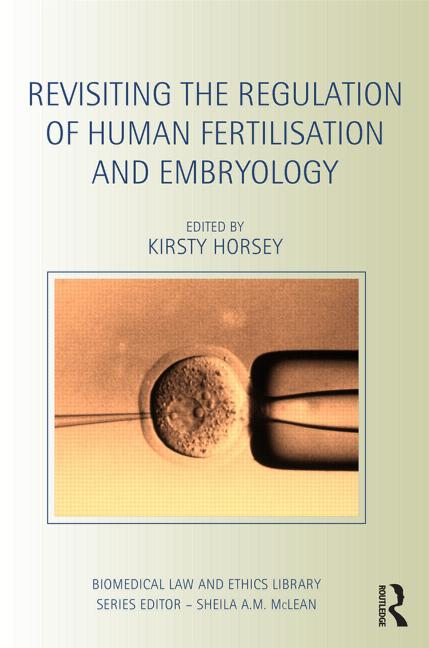A new book edited by Kent reproductive law expert Dr Kirsty Horsey critically examines the latest developments in human fertilisation legislation.
Revisiting the Regulation of Human Fertilisation and Embryology brings together a range of international experts, evaluating the fresh risks and challenges emerging from both established and existing technologies and techniques in the field of human fertilisation and embryology. Offering valuable insights into the social and regulatory landscape, the book examines key topics such as problems with DIY assisted conception; the lack of reform in respect of the regulation of surrogacy arrangements; and mitochondrial DNA transfer.
Dr Horsey is a Senior Lecturer at Kent Law School, teaching undergraduate students. She has published widely on issues relating to the regulation of human reproduction. This latest edited collection includes a section written by Dr Horsey in collaboration with Kent Law School teaching assistant Katia Neofytou, entitled ‘The Fertility Treatment Time Forgot: What Should be Done About Surrogacy in the UK?’ The chapter is a comparative study of how surrogacy is regulated in Greece and asks whether UK law could learn from the Greek example.
Other chapters contributed by teaching staff at Kent Law School include: ‘Thinking Outside the (egg) Box: Egg-share Agreements, Cord Blood and ‘Benefits-in-kind’ by Senior Lecturer Karen Devine; ‘A Less than Perfect Law: The unfulfilled Promise of Canada’s Assisted Human Reproduction Act’ by Associate Lecture Pamela White; and ‘Compensating Reproductive Harms in the Regulation of 21st Century Assisted Conception’ by Teaching Assistant Anthony Blackburn-Starza.
Earlier this year, Dr Horsey was invited to give a lecture on ‘Ethical responsibilities in surrogacy’ at the Families Thru Surrogacy international consumer conference in London. She is also currently a member of a working group of invited experts exploring surrogacy reform for Surrogacy UK (SUK) and is working with SUK on a survey about how surrogacy is practised in Britain and elsewhere. Survey findings will inform a new policy document for SUK briefings with politicians and policymakers.
In January, Dr Horsey successfully secured funding to investigate surrogacy law in practice. The grant will enable the implementation of a socio-legal pilot project researching lived experiences of surrogacy law.
In addition to her involvement with the Centre for Interdisciplinary Studies of Reproduction (CiSoR), a research centre based at the University of Kent, Dr Horsey is a member of the advisory committee for Progress Educational Trust (PET) a charity that works to inform debate on assisted conception and genetics. She is also a Contributing Editor for BioNews, a free news and comment digest published by PET.
The 4th edition of Dr Horsey’s text book Tort Law, written in collaboration with Erika Rackley, is due to be published next week by Oxford University Press
For more information about Dr Horsey’s publications and research interests, visit her staff profile page or follow her on Twitter.

